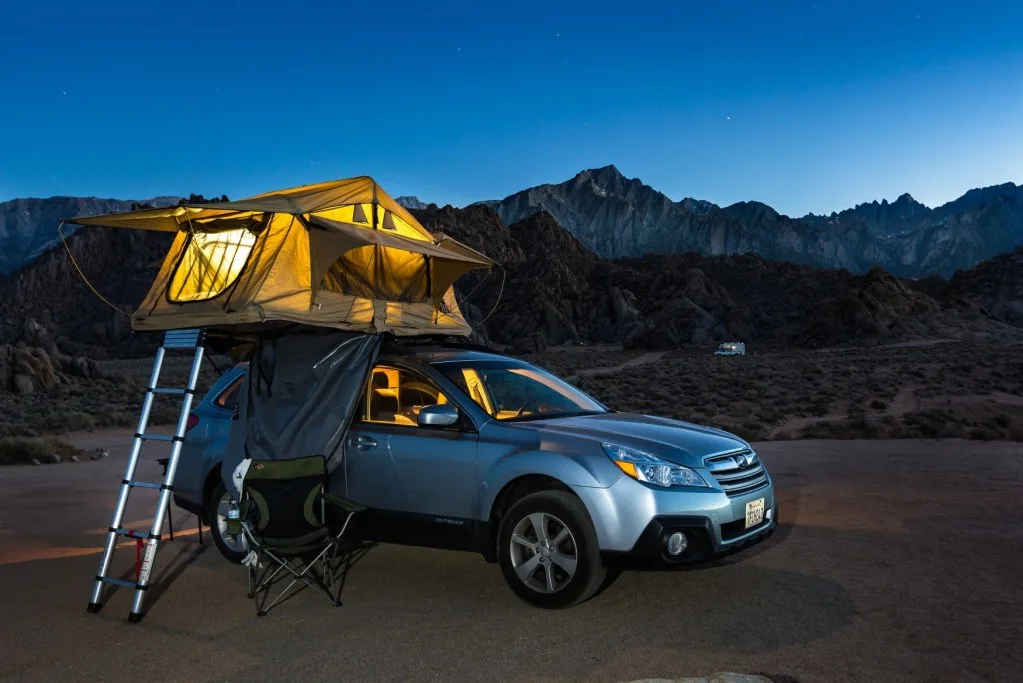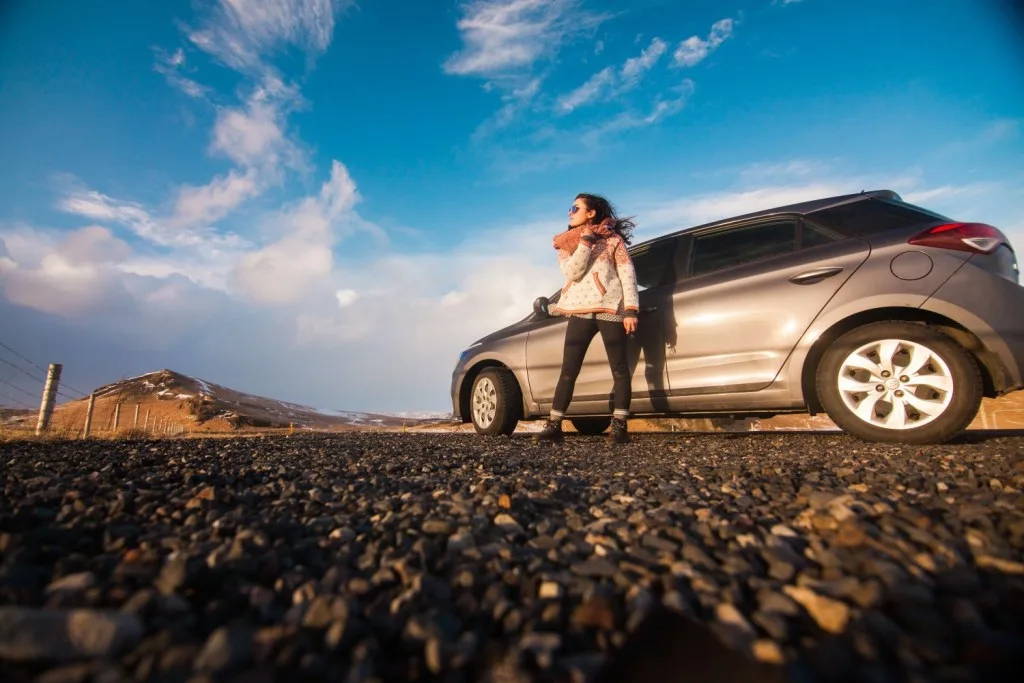How To Camp Out of Your Car, Legally
While we love RVing, sometimes having a smaller vehicle is more convenient or even necessary. This is where car camping comes in.
Car camping is an awesome way to see more of the country and not be held back by a large vehicle. But there are a few things you need to know before getting started.
If you own a car and are ready to explore, read on!

What is Car Camping?
People sometimes say “car camping” any time you drive your car to a campsite. But for this article, car camping is literally when you sleep out of your car.
Having your vehicle set up for camping is great because you don’t have to mess around with setting up a tent, trying to sleep while it flaps in the breeze, and so on.
Plus, if you are camping in colder weather, car camping can provide some additional protection against the elements as compared to tent camping.
One of our favorite car camping resources is Katie Carney’s YouTube channel. She’s a long-time, solo car camper who has explored America from coast to coast.
Is It Legal To Sleep In Your Car?
In many cases, it is legal to sleep in your car, however, there are some exceptions. Although a rest area seems like a logical place to sleep, some rest areas actually prohibit overnight parking. This varies by state, so research the rules in your state beforehand.
You are also prohibited from sleeping in your car on most private property and residential streets.
If there are signs for “No Overnight Parking”, it is best to steer clear. There are plenty of places you can legally sleep in your car, though.
We’ll cover the most popular options later, so keep reading.
What You Need for Car Camping
To have the best car camping experience, you need a few things.
First, you need to have somewhere to sleep. Usually, this will be your car (hence car camping). But some people also car camp and toss up a hammock or a car topper tent.
You also will most likely want a way to charge your electronics. It is a good idea to have a charged phone, just in case of emergencies. A charging brick or small solar panel can do the trick if you’re car camping for a short time.
Depending on the make and model of your car, the charging ports built into your vehicle may not work when the car isn’t running.
Other things you need for camping out of your car include a way to store necessary items like clothes and food. The more organized you are, the easier it is to camp out of a small space. This will make your experience much more enjoyable.
You’ll also need to have a way to prepare food or a cooler of ready-to-go food for the trip. Finally, there are a few optional items worth considering. One is a camping toilet. And the other is some type of personal protection.

How to Find Car Camping Campsites
There are many great options for car camping. Most public lands allow dispersed camping, which you can easily do out of your car. National or State Forests and BLM land are great options for camping.
You can also search for free campsites on freecampsites.net and Campendium. These will help you find boondocking spots where you can camp out of your vehicle. There are also other options for car camping. Some overnight parking lots, truck stops, and rest areas allow you to camp in your car.
Pro Tip: Truck Stops usually have awesome shower facilities. Here’s a guide to truck stop showers.
Some businesses will also let you camp overnight. Walmart is almost always a good bet, as are Cabela’s, some casinos, and other 24/7 stores.
Just be sure to double-check for permission and make sure no signs prohibit overnight parking.
Tips for Car Camping
We have a few tips we’d like to share for the best experience.
First, bring plenty of water. Most places you can car camp won’t have access to potable water.
It is also a total game-changer to have your own toilet along. No more having to find places to use the bathroom or the good old-fashioned digging a hole. You’ll have a much more pleasant experience thanks to this simple purchase.
As you car camp, you will also learn what works and what doesn’t.
Chances are you’ll have to tweak your sleeping arrangements until you find what works best. Another one of our best tips is to find free campsites. There are many options which we mentioned before. This will help you save money compared to having to pay to stay at a campground.
Finally, plan to arrive early. It is best to arrive at your campsite during the day. First, it makes setting up easier. Second, it will let you get a feel for the area. If you get a bad vibe or feel uncomfortable camping somewhere, leave! Always better safe than sorry.
So, trust your gut.

Fuel Up Your Car and Hit The Road
Sometimes, car camping is the most convenient way to see the country. A bonus is that you can usually do it totally free!
If you prepare and aren’t afraid to make changes along the way, car camping can be super comfortable. If you’re ready to hang up the RV keys for a while, car camping is definitely the way to go.
Discover the Best Free Camping Across the USA
To be honest with you, we hate paying for camping. There are so many free campsites in America (with complete privacy).
You should give it a try!
As a matter of fact, these free campsites are yours. Every time you pay federal taxes, you’re contributing to these lands.
Become a FREE CAMPING INSIDER and join the 100,000 campers that love to score the best site!
We’ll send you the 50 Best Free Campsites in the USA (one per state). Access the list by submitting your email below:
Allison Sharpe with YouTube channel “Travel Snacks” is another great resource. Thanks for the info, great article. I’m currently in my 2005 Pathfinder, and do pretty well. I live in Nevada, so I have access to some pretty amazing (and free!) places. My favorite is a deep canyon where the wild horses and burros wander through.
Public lands have a typical 14 day plus or minus legal limit, depending on the area, to protect resources and make room for other travelers and temporary campers. These lands are being overused and abused and are not meant for residency. Please, any source promoting responsible camping should emphasize that.